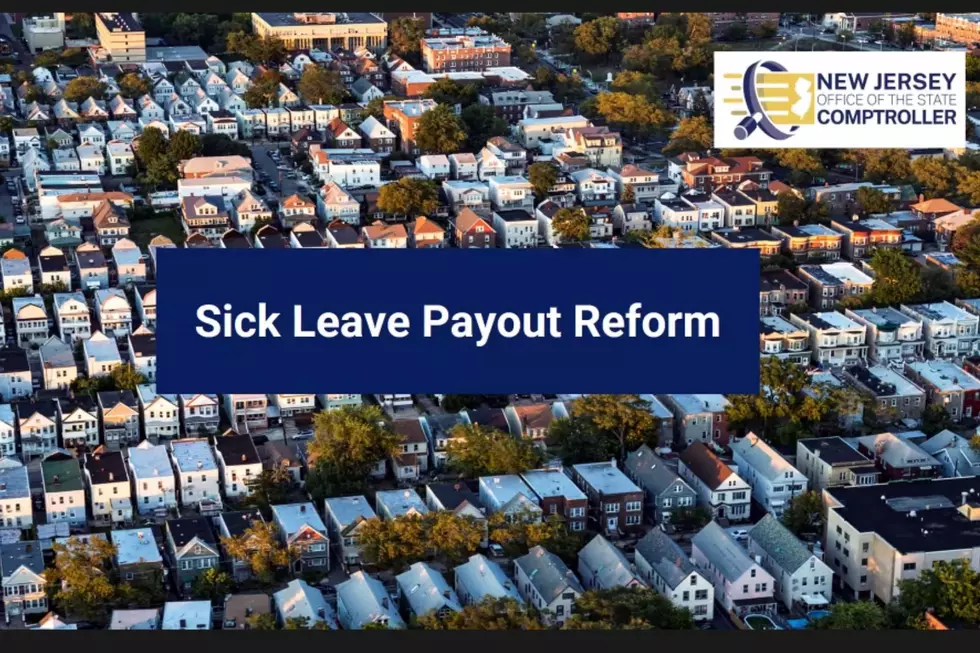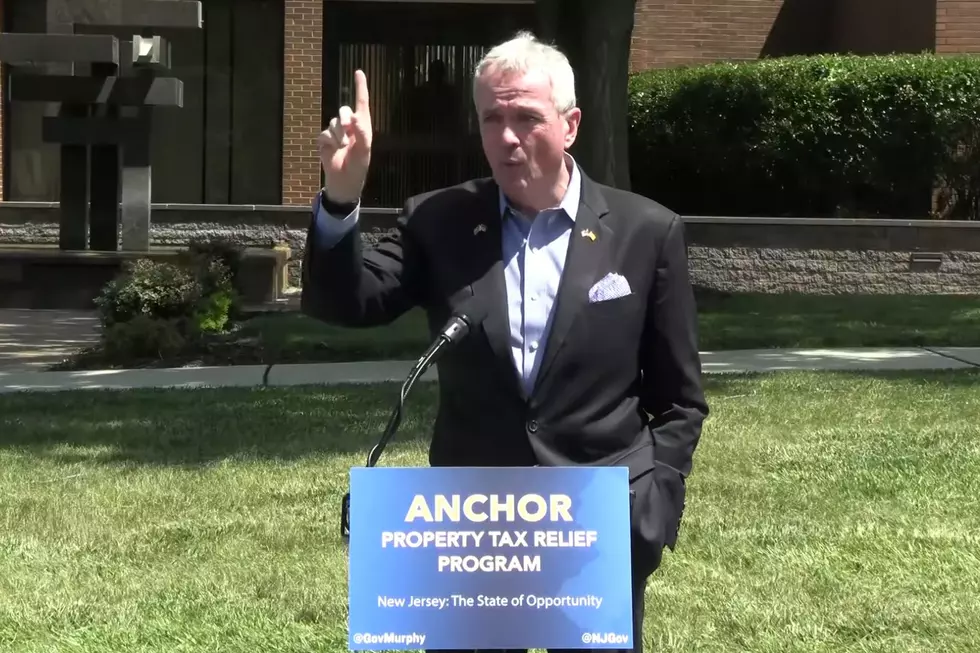![The One Reason For NJ’s Sky-High Property Taxes [AUDIO]](http://townsquare.media/site/385/files/2012/04/state-house.jpg?w=980&q=75)
The One Reason For NJ’s Sky-High Property Taxes [AUDIO]
You probably already know that on average New Jersey has the highest-in-the-nation property taxes. It seems everybody has a different reason why that is.
The State Senate President says everyone is over-thinking the issue because he can boil it down to one thing.
"We've got too much government," explains Senate President Steve Sweeney. "We have too many government employees. We have too much government in general…..Until we get serious about sharing services we're never going to get to the real problem….We pay a lot in property taxes because we have too much government."
Sweeney says he's not trying to offend the people who pick up our trash, clean our streets and fix our roads because we need those people. He just doesn't think there needs to be some many supervisors above them.
Most experts agree that property taxes could be dramatically reduced if towns can find a way to share services, but Sweeney says too many municipalities simply refuse to do it because of home rule. He says that's why he's sponsoring a measure that is a little carrot and a lot of stick.
Sweeney's bill would require New Jersey's Local Unit Alignment, Reorganization, and Consolidation Commission (LUARCC) to study local government units (county government, municipal government, school districts) to determine where taxpayer dollars could be saved through sharing of services.
If the study shows that a savings can be realized through sharing that service in one or more local governments, the question of whether to do so or not would be put to a public referendum in all municipalities involved. If the towns involved fail to pass the proposal, they would be subject to losing state aid in the amount equal to what they would have saved had they shared the service. If one town approves it but another denies it, only the town that denied it would lose aid.
"It's about sharing services," explains Sweeney. "For years we had programs that we give you money if you would share. Didn't work…..We tried the nice way of giving you money and people wouldn't take it to share. Now, my approach quite honestly is the stick approach. If you don't share we're going to reduce your state aid. Then for the people in the local community, there's no State involvement, there's no State money. They want more expensive government? They got it!"
Civil service rules would be suspended for employees impacted by any shared services agreement that is reached. This would address a concern raised by local government leaders that civil service rules serve as a barrier to sharing services. In putting together the legislation, Sweeney met with dozens of local elected officials who provided input on the issue of shared services.
"We've got to shrink government and the only way we're going to help taxpayers here is to shrink government by forcing shared services and consolidations," says State Sweeney. "We as a (State) government should be able to reduce our contribution to their local government. Why should we fund government that could be cheaper?"
What if voters in town "A" vote in favor of sharing services or consolidating, but voters in town "B" shoot the ballot question down? Sweeney answers, "We don't punish town "A" because they were willing to step up, but town "B" is going to lose aid."
Even mayors in that want to share services with neighboring towns have often complained that public employee civil service rules are a roadblock. If one municipality is in the system, but the other is not a merger is all but impossible. Sweeney says under his legislation, "Where you do a shared service we do away with civil service. I'm not saying the whole operation, but if one town is civil service and the other town's not, when you put these two entities together and create one where one moves over to the other there's no civil service."
Bill Dressel, executive director of the State League of Municipalities applauds the majority of the bill but feels voters in towns that reject the sharing of services shouldn't be penalized by losing state aid.
"We have to get away from simply waving money in front of towns and talking about shared services in the abstract in the hopes that a few will decide to come together," says Sweeney. "The carrot has gotten very few nibbles. It's time for us to break out a few sticks."
More From New Jersey 101.5 FM









